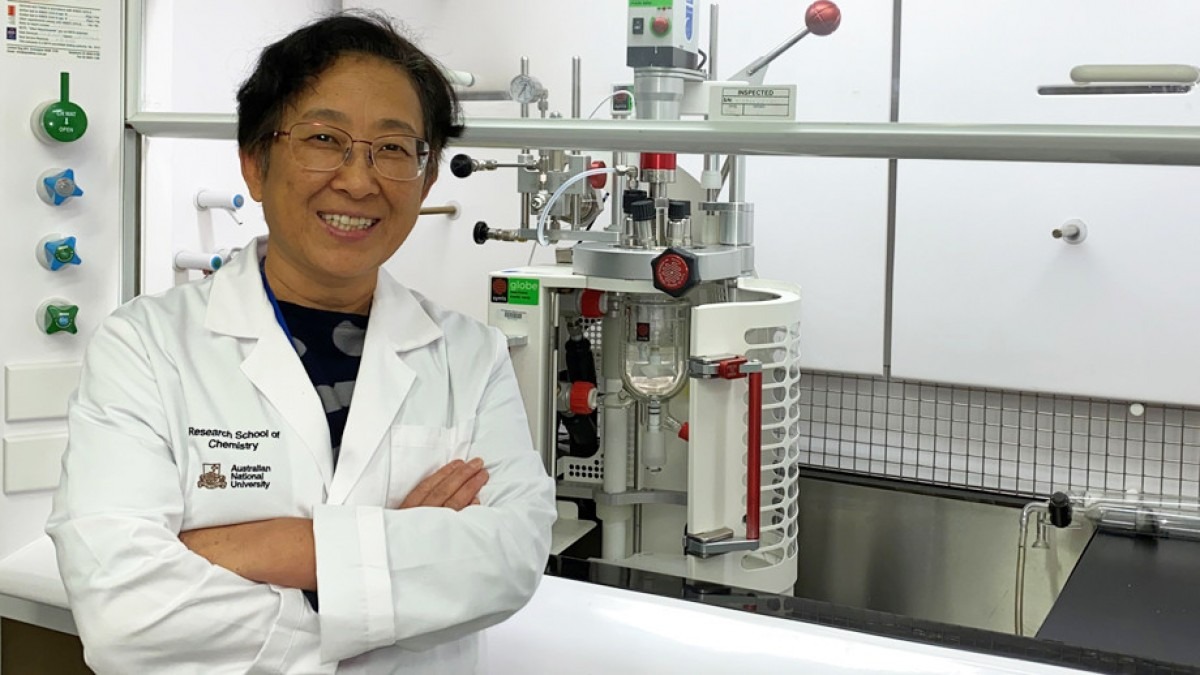Cash flow to help push clean hydrogen energy solutions
Researchers and industry experts are closer to safely storing and transporting vast quantities of hydrogen, with the cleaner technology offering a potential replacement for fossil fuels and a possible new export industry for Australia.
Led by Professor Yun Liu from the ANU Research School of Chemistry, a team of academics and industrial engineers have received an Australian Research Council Linkage grant worth $780,000 over four years to further develop Liquid Organic Hydrogen Storage.
"It's great to receive this grant, which will give us an opportunity to transfer our fundamental innovation research into the industrial sector, and develop perhaps Australia's first liquid hydrogen storage facility at Fyshwick and near Australia's first public hydrogen refuelling station," Professor Liu said.
"The project not only includes the technology development but also the regulatory study on how to remove barriers for the future commercialisation of this hydrogen storage technology, so we're working with our colleague, Dr James Prest in the ANU College of Law."
The project is a collaboration involving ANU researchers, the University of New South Wales (Canberra), the ACT Government, and the companies Global Power Generation Australia (GPG Australia), Hydrogenia, Evoenergy and Illuminact.
Contributions from GPG Australia - a long-term supporter of energy research at ANU - pushes the total value of the project to more than $1.4 million.
Researchers believe hydrogen could ultimately replace fossil fuels and become a new export source for Australia, provided it is created using renewable electricity sources, and not gas or coal.
"Hydrogen has long been touted as a clean alternative to fossil fuels," David Santo Tomas, Projects Director of GPG Australia, said.
"Now, as major economies prepare green investments to kick start growth, hydrogen is in the best position to be the locomotive of the post-pandemic world.
"This ANU and industry collaboration can play a huge role in allowing Australia to be a clear leader this energy revolution."
Bruce Hansen of Evoenergy was thrilled with Professor Yun Liu's successful bid for the ARC Linkage Grant. Mr Hansen is also the leader of the Canberra Region Hydrogen Technology Cluster -- one of 13 created by National Energy Resources Australia in 2021.
"We look forward to supporting the research with access to the Hydrogen Test Facility at Fyshwick," Mr Hansen, the utility's Group Manager of Gas Networks, said.
"Development of hydrogen storage technologies will be important to the hydrogen economy and Evoenergy is proud to be associated with Professor Liu's project."
Associate Professor Terry Frankcombe of UNSW Canberra said the hydrogen storage technology being developed is unique, and offers a number of benefits over what others are developing globally.
"Our role at UNSW Canberra will be to develop and apply state of the art theoretical and computational chemistry tools to the materials being employed for the energy transformation project, in order to guide the design of the chemistry," Professor Frankcombe said.
"Our expertise complements ANU expertise, and this project is an excellent showcase for the benefits of combining the capabilities of Canberra's two top physical science research-intensive university campuses.
"It is also yet another example of the impact that the large-scale computational resources provided by the National Computational Infrastructure can have on real-world problems, and the importance of a having strong 'blue-sky' research base to build solutions to emerging problems."
The Minister for Water, Energy and Emissions Reduction, Shane Rattenbury MLA, said through the ACT's renewables reverse auctions, the ACT Government was able to support the cutting edge renewable hydrogen research project, with Global Power Generation Australia's industry investment commitments.
"This project is another example of how our commitment to 100 per cent renewable electricity does not just reduce our current emissions footprint, but also grows economic development opportunities for the future," Minister Rattenbury said.
"I would like to congratulate ANU and all partners involved on winning the ARC Linkage grant. We look forward to seeing successful outcomes from this endeavour."
Professor Ken Baldwin, Director of the ANU Grand Challenge Zero-Carbon Energy for the Asia-Pacific said: "Australia is in a strong position to continue its role as an energy powerhouse for a decarbonising world through the export of hydrogen produced by renewable energy.
"Research into hydrogen storage and transport technology will be crucial for this, and here in the ACT we have the chance to make a big contribution through this industry/university collaboration."
Dr Igor Skryabin, convenor of the hydrogen economy research cluster at the ANU, said this project brings together advanced research in material science and engineering, a global renewable energy developer, Canberra's gas distribution company, and a technology start-up.
"This will be the first project undertaken within the Canberra Region Hydrogen Technology Cluster framework, of which project participants ANU, Evoenergy, GPG Australia and Hydrogenia are members," Dr Skryabin, from the ANU Institute for Climate, Energy and Disaster Solutions, said.

